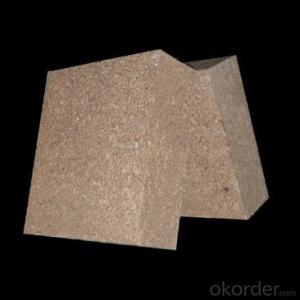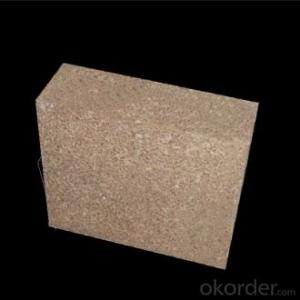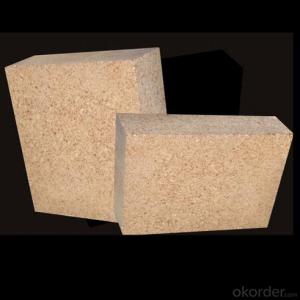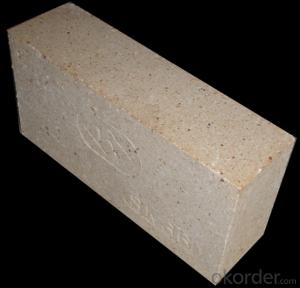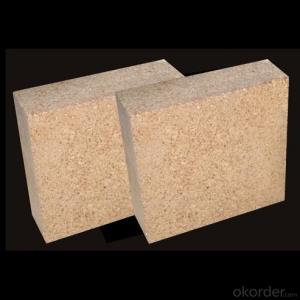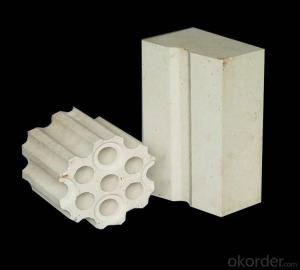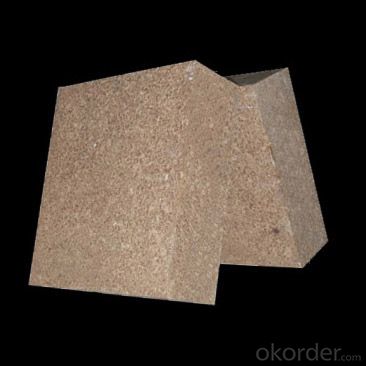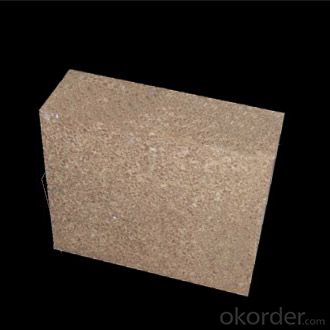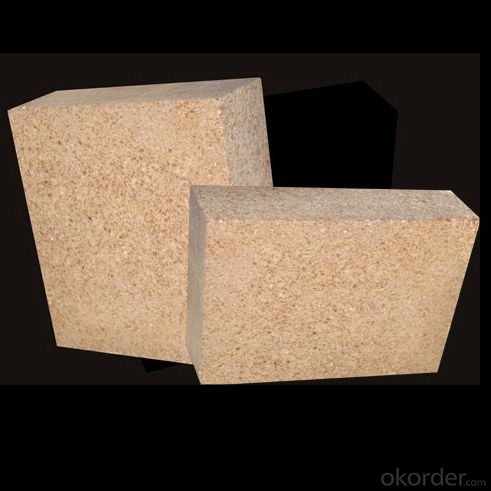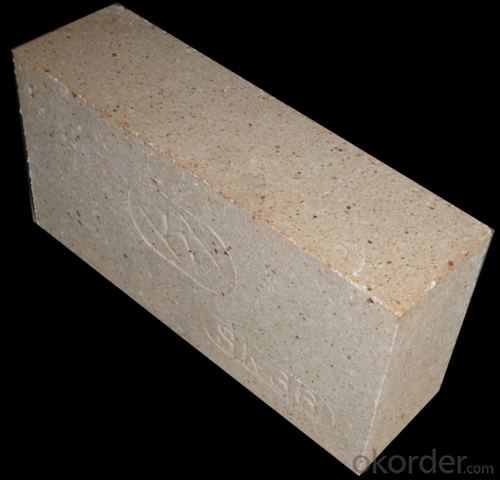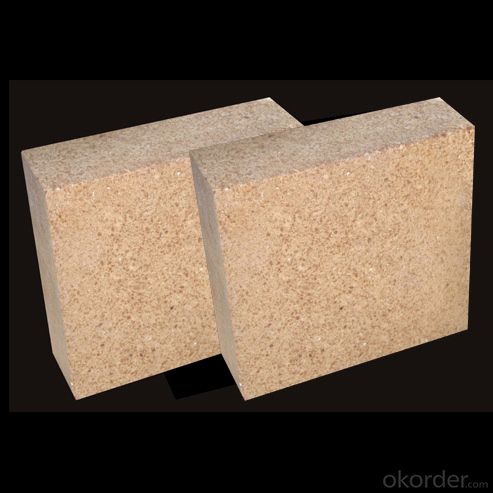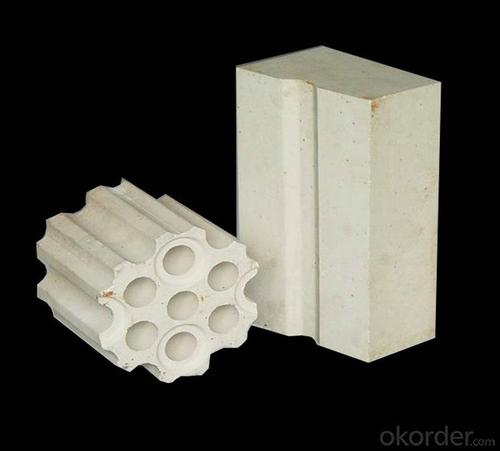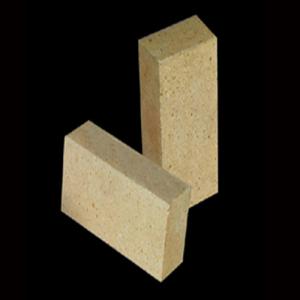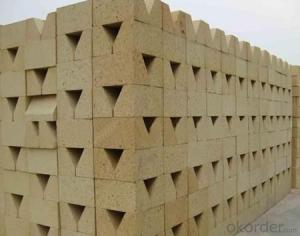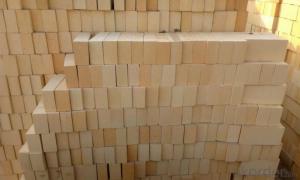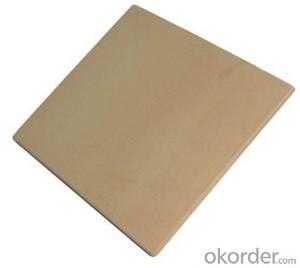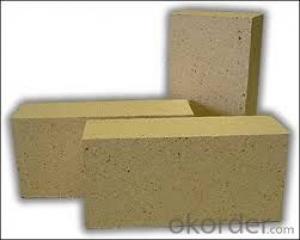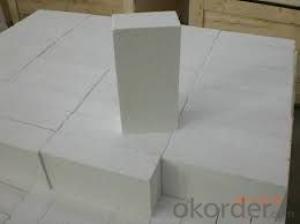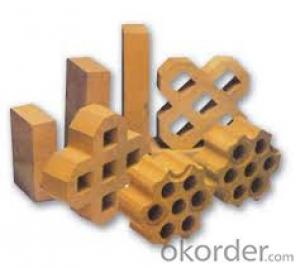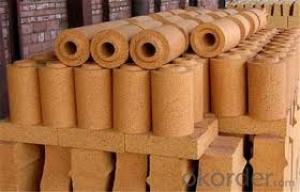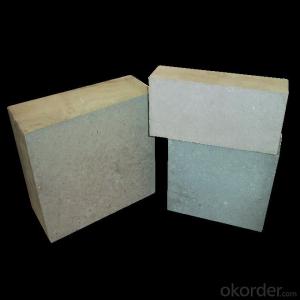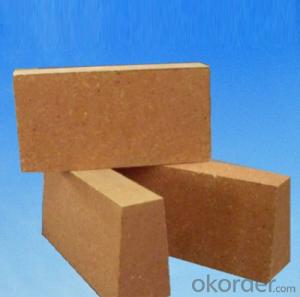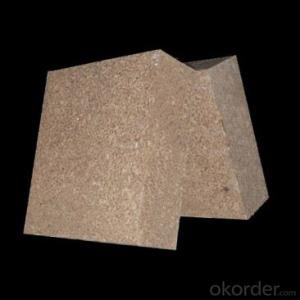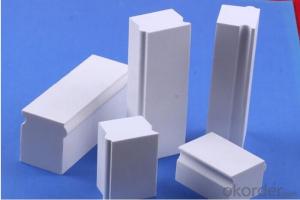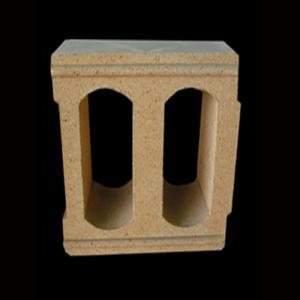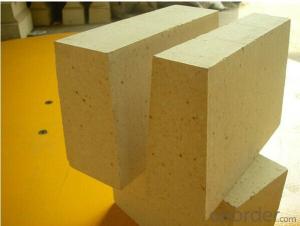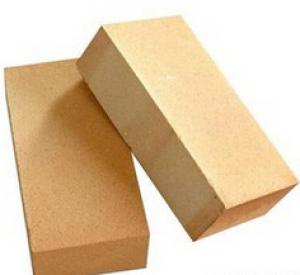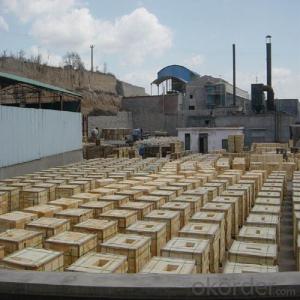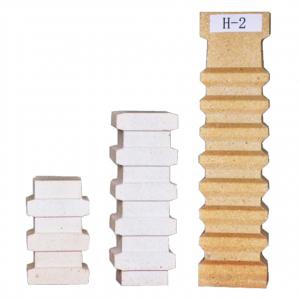High Alumina Brick for Steel Making Furnaces
- Loading Port:
- Qingdao
- Payment Terms:
- TT OR LC
- Min Order Qty:
- 6 m.t.
- Supply Capability:
- 10000 m.t./month
OKorder Service Pledge
OKorder Financial Service
You Might Also Like
High Alumina Bricks for Steel Making Furnaces
Composite of High Alumina Bricks for Steel Making Furnaces
High Alumina Bricks are classified according to alumina content ranging from 48% to 90%.
Main Features of High Alumina Bricks for Steel Making Furnaces
Low thermal conductivity
Excellent acid and base slagging resistance
Excellent thermal shock resistance
Excellent mechanical strength
Acid and alkali resistant
High tensile strength
Resilient to thermal shock
Corrosion resistance
Wear and erosion resistant
Application of High Alumina Bricks for Steel Making Furnaces
commonly used in blast furnace, hot blast furnace, the roof of electric furnace, teeming ladle, rotary kiln, regenerator, etc
High Alumina Bricks for Steel Making Furnaces Images
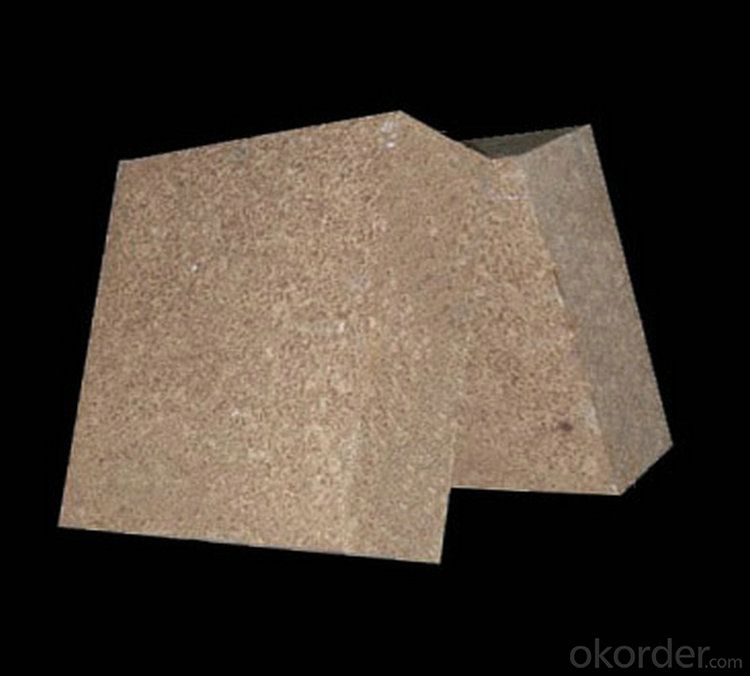
Specification of High Alumina Bricks for Steel Making Furnaces
HIGH ALUMINA BRICK---ALP85 | |
Apparent Porosity (%) | ≤18 |
Bulk Density (g/cm3) | ≥2.85 |
Cold Crushing Strength (Mpa) | ≥80 |
Modulus Of Rupture (Mpa) | ≥20 |
Refractoriness Under Load (0.2 Mpa)(℃) | 1450 |
Permanent Linear Change (%) | 1500℃×3h -0.5 ~+0.5 |
Chemical Composition (%) |
|
Al2O3 | ≥82 |
Fe2O3 | ≤1.5 |
P2O5 | ≤3 |
FAQ of High Alumina Bricks for Steel Making Furnaces
Q1:Are you a manufacture or trader?
A:Factory+trade(mainly factories, at the same time, we operates other related products).
Q2:Can we visit your factory?
A:Sure,welcome at any time, seeing is believing.
Q3:What's the MOQ of trial order?
A:No limit, We can offer the best suggestions and solutions according to your condition.
Q4:Which payment terms can you accept?
A:T/T,L/C are available for us.
Q5:After an order is confirmed, when to deliver?
A:15-25days after deposit.
Q6:Is your company accept customization?
A:We have own factory and excellent technical team, and we accept OEM service.
- Q: What is the heat preservation material used in a laboratory furnace?
- Silicon carbide (SiC) is made from quartz sand, petroleum coke (or coal tar), sawdust (green salt produced when adding green silicon carbide) and other raw materials by smelting with resistance furnace at high temperature. Silicon carbide also rare minerals in nature, Mo sangshi. Silicon carbide, also known as carbon silica. Silicon carbide is the most widely used and the most economical kind of refractory materials in C, N, B and other non oxide refractory materials. It can be called "carborundum sand" or "refractory sand".
- Q: What are the requirements for Rubble backfill height?
- 1, filling thickness is not greater than 50cm.2, filling, the use of layered filling.
- Q: What's the difference between a well type annealing furnace and a box type annealing furnace?
- RT3 series trolley type resistance furnace is a national standard energy-saving cycle type operation furnace. It has super energy-saving structure, adopts fiber structure and saves electricity 30%. Exclusive production of composite high aluminum nails group, car anti-collision sealing brick, automatic sealing trolley and furnace door, integrated rail, without the basic installation, placed on the ground floor can be used. Mainly used for high chromium, high manganese steel castings, ductile iron, roller, steel ball, 45 steel, stainless steel quenching, annealing, aging, and various mechanical parts heat treatment. Features: 1, no noise, no environmental pollution. 2, small heat storage, less heat loss. 3, high temperature control accuracy, furnace temperature uniformity. 4, a high degree of automation, simple. 5, PID programming can be used to set, fully automatic operation. 6, good sealing, long life, safe and reliable. Widely used in chemical, petroleum, food, metallurgy, machinery, light industry, electricity, ships, paper, mining, medicine, central heating and other industrial sectors. With the development of social productive forces, its application in various industries is more and more widespread. Two, pitannealingfurnace (for example: flange heat treatment furnace) use: the furnace for metal parts, such as ring of equipment heat treatment at rated temperature: the furnace is composed of furnace body and a movable furnace cover and control system.
- Q: What are the common thermal insulation materials for thermal conductivity?
- The single organic insulation material should be the best polyurethane in the field. In accordance with the production process can be divided into on-site foam polyurethane and factory prefabricated rigid foam polyurethane board. The scene is polyurethane foam isocyanate and polyol to cool (polyether or polyester) two components as the main raw materials with additives, the on-site spraying construction with thermal insulation and waterproof function of the rigid foam material.
- Q: Aluminum content 38, silicon content 55 What refractory bricks?
- Hello Only on behalf of the Zhengzhou colt as refractory product index your answer to this question is not entirely separate from the chemical index of aluminum content, silicon content and judgment, personally think that three types of refractory bricks may respectively is: Two: semisilica brick high alumina brick
- Q: Are there any differences between insulating bricks and refractory bricks?
- As the name suggests, the main role of insulating brick is used to preserve heat and reduce the loss of heat. Such as: Molai S; and the firebrick is mainly used to withstand flame burn. Bricks usually do not contact fire directly, while refractory bricks usually contact the flame directly.
- Q: What are the requirements for refractory materials in heat treatment furnace?
- Fire resistance is an important performance index of refractory materials, but it does not represent the highest temperature in actual use of refractory materials. In actual use, refractories also bear certain pressure, therefore, must consider the high strength at high temperature refractory material, which is in high temperature under certain pressure without deformation, such as the NZ-40 refractory refractory degree up to 1730 DEG C, but the maximum temperature is only 1350 degrees celsius.
- Q: How to distinguish the good or bad of the high aluminum brick?
- Weigh the weight of the next block. According to the weight standard, a high alumina brick is 3.9 kg in weight, two in high alumina brick, three in high aluminium brick and 4.5 kg in 4.2. The same grade, the same type of high alumina brick, if the weight of a single brick to this standard, but for high quality high alumina brick, otherwise, can not reach such a weight, it shows good quality. If there is a crack, a large piece of broken angle, four sides of inequality, it is for substandard products.
- Q: What is the difference between fireclay bricks and high alumina refractory bricks?
- First of all, there is a difference in the material, one is clay, and one is high aluminum.Also known as clay brick brick, is a man-made small bulk building, clay brick clay (including shale, coal gangue powder) as the main raw material, through mud processing, molding, drying and roasting, solid and hollow.
- Q: What is the difference between metal compounds and metal solid solutions?
- Solid solution refers to the alloy phase in which the solute atoms are dissolved into the solvent lattice and remain solvent type. A crystalline substance consisting usually of atoms or molecules in which a chemical substance is dissolved as a base; other substances are found in alloys and silicate systems; also present in polyatomic substances. The mixture can be treated as a solution when the crystal structure of the solvent can be stabilized and homogeneous after addition of solute. Some mixtures can form solid solutions in many concentrations, while some mixtures do not form solid solutions at all.
Send your message to us
High Alumina Brick for Steel Making Furnaces
- Loading Port:
- Qingdao
- Payment Terms:
- TT OR LC
- Min Order Qty:
- 6 m.t.
- Supply Capability:
- 10000 m.t./month
OKorder Service Pledge
OKorder Financial Service
Similar products
Hot products
Hot Searches
Related keywords
